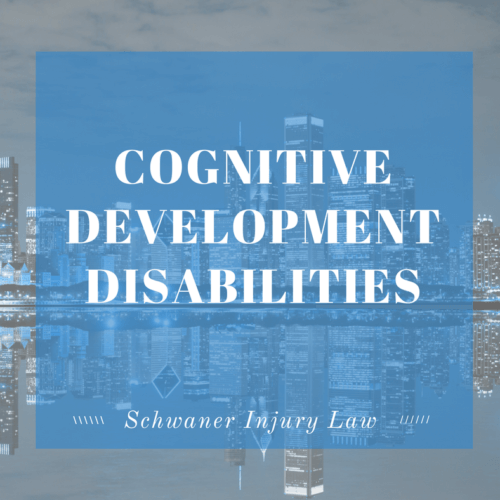
Cognitive Developmental Disabilities Due to Birth Injury
While many of us believe that certain developmental disabilities such as attention deficit disorder and disorders on the autism spectrum are the result of chance, many studies have shown that birth injuries such as a loss of oxygen and other traumatic head injuries at birth could be to blame.
There are a wide range of different developmental disabilities associated with birth injuries. Some are mild, with developmental and fine motor skill delays, while others are more serious, but each can turn one of the happiest days of a parent’s life – the birth of a child – into one of the scariest.
Attention Deficit Disorder
While genetics, the use of alcohol, cigarettes or illicit drugs during pregnancy, exposure to environmental toxins, low birth weight, or premature birth are considered potential causes for ADD and ADHD, birth injuries are beginning to get more attention from researchers.
Some experts suggest that as many as 80 percent of children with attention deficit disorder (ADD) or attention deficit hyperactivity disorder (ADHD) experienced injuries at birth, while others believe the numbers are much smaller.
According to John M. Grohol, Psy.D., damage to the frontal lobes of the brain, the areas that control problem-solving, planning, impulse control and the ability to understand the behavior of others, could be a cause of ADD or ADHD. (Ref. 1)
Some symptoms of the two include the inability to stay on task or stay focused, disorganization, difficulty with impulse control, hyperactivity (finger or foot tapping, fidgeting, restlessness or talking when inappropriate), a need for instant gratification, a lack of attention to detail with homework, and difficulty with organizational skills.
Those with ADHD have similar symptoms, but they are much more pronounced, making it the more serious of the two diagnoses.
Some birth injuries associated with frontal lobe injuries include:
- The improper use of forceps or vacuum extraction devices.
- The improper use of epidural pain medication, which can slow contractions, causing birth complications.
- Uterine inertia, in which contractions slow or stop completely during labor.
- Performing a cesarean section too late during a difficult birth.
- Inducing labor with the use of medications, which can cause labor to complete too quickly, potentially leading to traumatic head injuries.
- Failure of a physician to monitor a baby’s heart rate to determine if enough oxygen is reaching the brain.
- A temporary loss of oxygen due to the umbilical cord becoming wrapped around a baby’s neck.
- Neonatal anemia, which can mean a limited amount of blood – and oxygen -reaching the brain.
- Maternal hemorrhaging, which pulls blood away from the infant.
- A medical professional pulling a baby too roughly from the birth canal during a difficult birth.
Social anxiety and problems with fine motor skills have also been linked to the short deprivation of oxygen.
Autism Birth Injury
While not always caused by a birth injury – autism is a neurodevelopmental disorder that could be caused by genetics or exposure to toxins – autism is often the result of some type of birth injury.
Injuries associated with autism include:
- A delayed cesarean section associated with birth complications requiring a C-section.
- A difficult delivery, which can cause an infant’s head to press hard against the mother’s public bone, causing a head injury.
- Improper use of assisted birthing devices, including forceps and vacuum extraction devices, which can cause skull fracture.
- A temporary lack of oxygen, usually caused by an umbilical cord that cuts off circulation when it wraps around the baby’s neck.
- Cephalohematoma, which is bleeding of the brain between the brain and the skin that can cause damage to the brain if the pressure is not relieved.
A 2011 review by the University of Miami’s Miller School of Medicine looked at several studies from 2007 to 2011 and found that oxygen deprivation during any stage of pregnancy or delivery was strongly linked to an autism diagnosis. (Ref. 2)
“Reduced oxygen supply … could influence autism risk,” said Hannah Gardener, ScD, one of the study’s lead researchers.
Symptoms of autism include the failure to meet childhood milestones, behavioral and cognitive issues (including being easily distracted or bored, easily angered, hyperactive, impulsiveness, poor listening skills, and a difficulty following directions.
Although there is no definitive cause for Asperger’s syndrome, a form of autism, both traumatic brain injuries, oxygen loss and exposure to toxic substances or certain medications early in a pregnancy have been linked to the disorder.
Cerebral Palsy
While some causes of cerebral palsy remain unknown, many cases are the result of a brain injury either before, during or after birth, most often as the result of medical negligence.
CP in most cases impacts motor function, but in more severe cases also causes cognitive disabilities. It leads to poor muscle control, either due to stiff or floppy muscles, and can lead to speech and language problems, poor impulse control and learning disabilities.
Causes of CP include:
- Damage to the brain due to the incorrect use of assisted birthing devices.
- A lack of oxygen at some point during the birthing process that results in the death of brain cells in regions that control either cognition or movement or both.
- Brain trauma caused by delivery complications.
- A cesarean section that is scheduled too late, after damage to the infant’s brain has already occurred.
- Cephalohematoma, or bleeding of the brain, which can put pressure on brain cells, damaging or killing them.
REFERENCES:
- https://psychcentral.com/disorders/adhd/causes-of-adult-attention-deficit-hyperactivity-disorder-adhd/
- https://www.webmd.com/brain/autism/news/20110711/birth-complications-linked-to-autism












